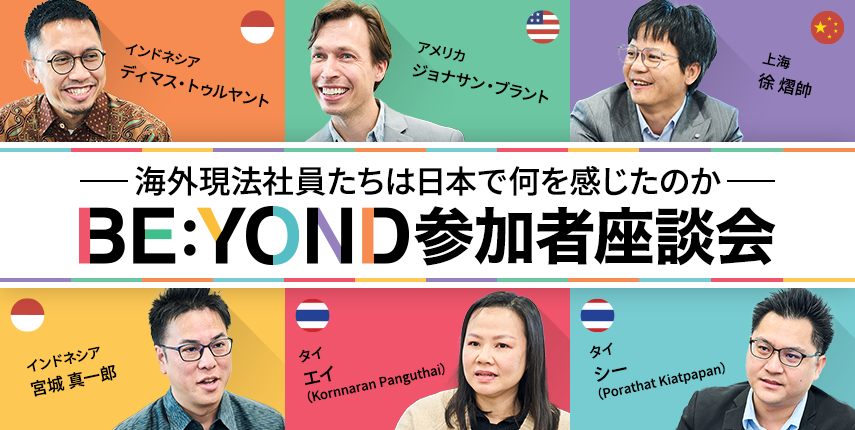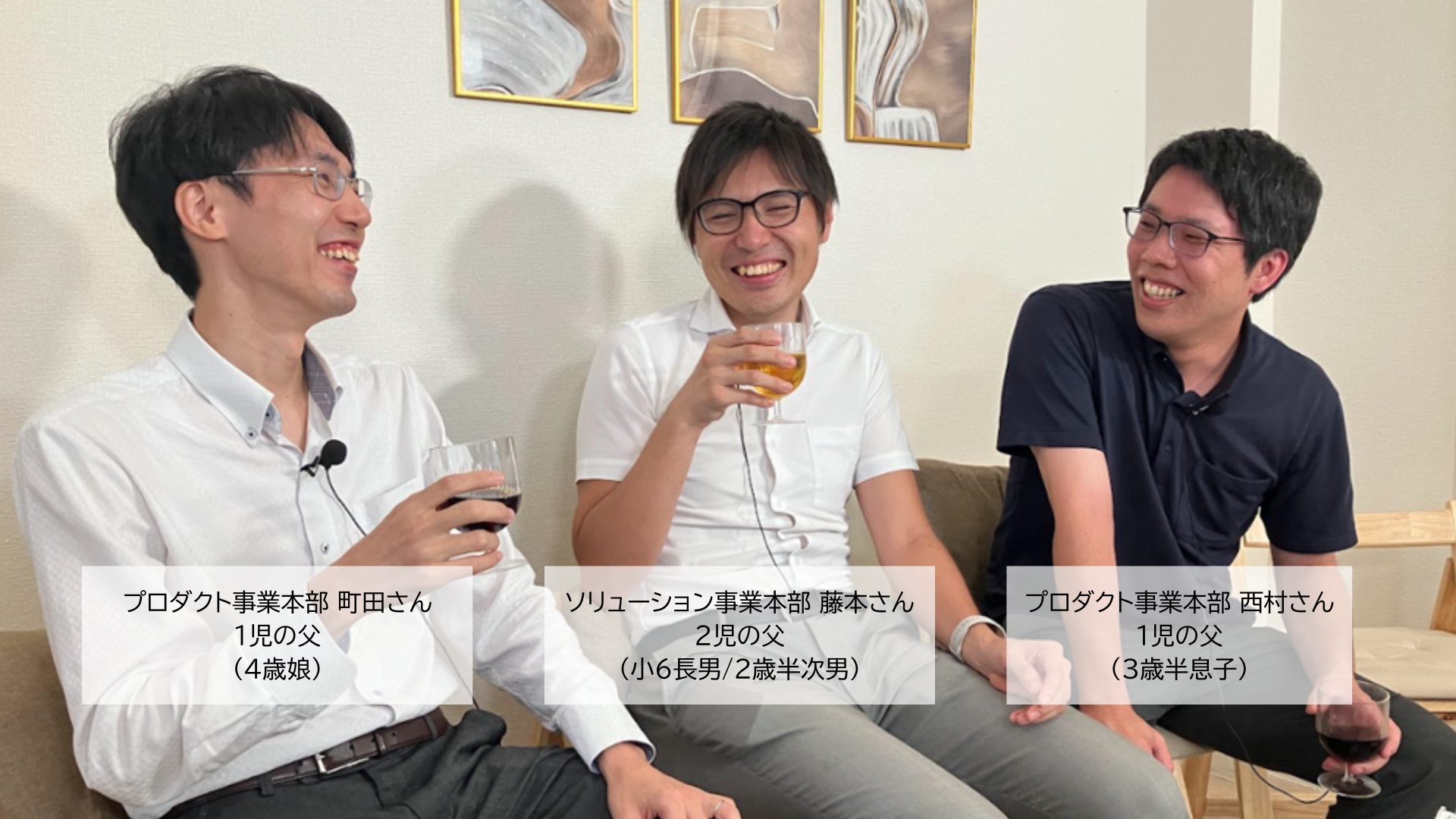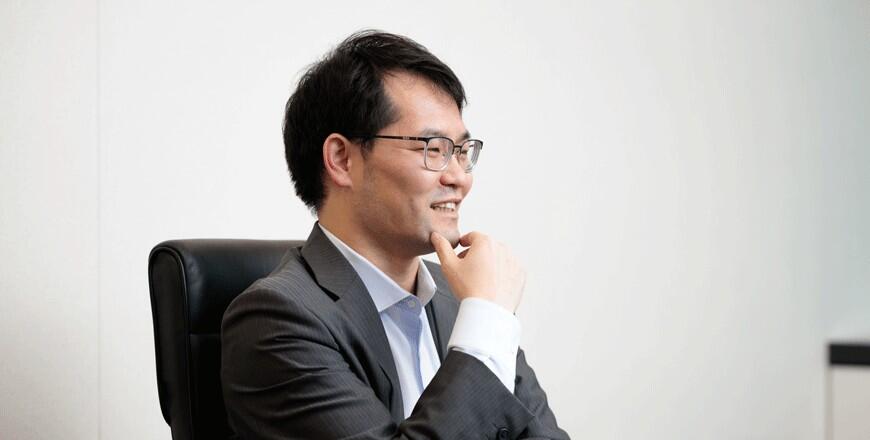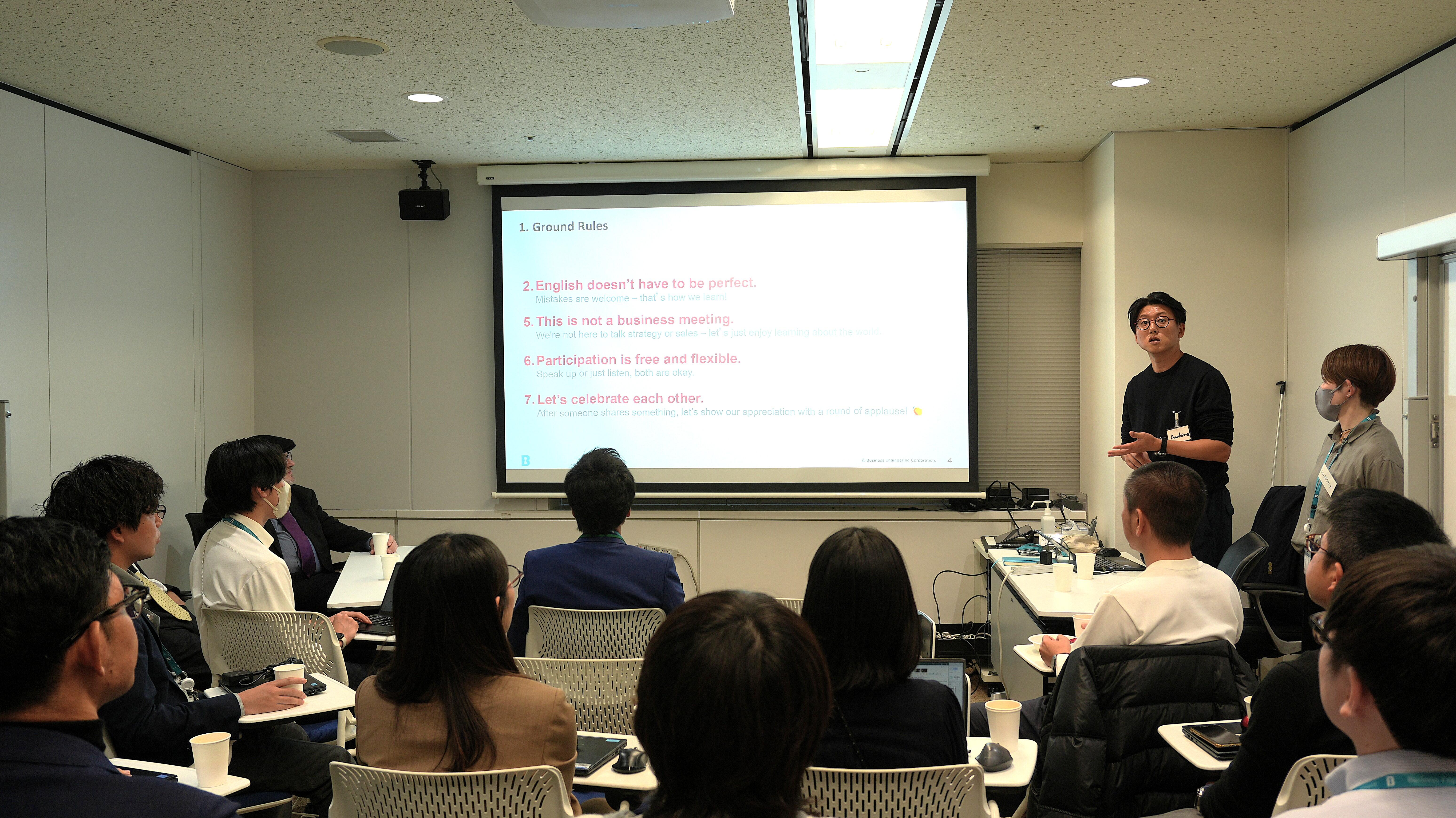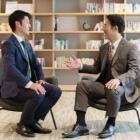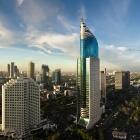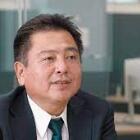In March 2025, the Business Engineering Group (B-EN-G) held "BE:YOND 2025," an event for the manufacturing industry, in Tokyo to introduce the ideas, success stories, and advanced solutions of leading digitalization companies. Twenty-four partner companies set up booths at the venue, and more than 1,000 people from the manufacturing and IT industries attended. Staff from each of the B-EN-G Group's overseas bases also participated, and we asked the members who gathered in Tokyo about their impressions of the event and the discoveries they made there.

Realizing the momentum of "global" and "DX"
--Please tell us your impressions of participating in BE:YOND.
C: Many partners and customers participated, with 24 companies lined up at the exhibition booths. I got a real sense of how many business partners we have.
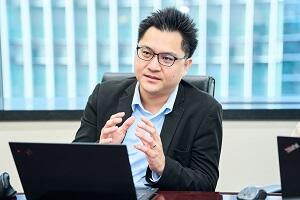
Although the Japanese companies that we deal with on a daily basis that have expanded into Thailand are different, I had the impression that Japanese companies tend to have a more domestic approach to development. Looking at the partner company booths and the behavior of the visitors, I changed my perception and realized that "There are a lot of people in Japan who are interested in global business."
Xu: It was impressive to see various customers and partners talking to each other at the venue. I also got the visual impression that B-EN-G has become a business platform.
--Were there any differences you noticed between Japan and overseas?
A: Compared to the event in Thailand, I felt a cultural difference in the way the sections were organized and managed. Also, the posture of the participants was very different. It was impressive to see the Japanese people sitting properly in their chairs, calming down, and concentrating and listening to the presenters.
Xu: Now that I'm in charge of marketing, the idea of hosting an event was appealing to me. I'd like to host an event like this in Shanghai someday. I felt a sense of urgency that I need to work hard to expand my business in order to achieve this.
-- "Digital manufacturing" was a keyword at the event. Did you sense any momentum in that area?
E: I don't understand Japanese, but from the keynote session and the atmosphere at the venue, I got a strong sense of the growing interest and momentum in AI (artificial intelligence) and DX (digitalization). This is a topic of great interest in the manufacturing industry in Thailand, and I think it also reflected the company's intention and message that "B-EN-G will globally support the step towards DX in the manufacturing industry."
Jonathan: I think the impression that people in Japan have is different, but compared to Japan and Germany, there are many places in the United States where DX is not yet advanced. I spoke with people who do business in the United States, and we shared the same view, and I was convinced that "there is still a big opportunity in the United States."
Miyagi: I spoke with someone from the IT department at the Japanese headquarters, and they told me that they felt there was a problem: "The momentum is certainly building, and the headquarters wants to support the digital transformation of its overseas bases, but we don't have the capacity to do so."
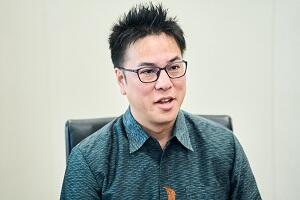
With regard to these issues, we at B-EN-G, our local staff, and our partner companies can help, so we hope that they will rely on us.
"Let's work together" with friends from around the world
--Members from various overseas bases gathered at the event.
Jonathan: The best part was being able to speak face-to-face with colleagues who I had worked with remotely in the past. I was warmly welcomed and felt a strong passion for the company. I was also impressed by the business power and wealth of knowledge that B-EN-G members possess, and I realized that we are a group of very powerful people.
Dimas: I was very happy to meet everyone at each B-EN-G location. My biggest impression was that I finally got to meet everyone. We had lively conversations about the situation at each company and location, and the work we do, and it made me feel like, "Even though we're usually apart, let's all work together."
-- Many customers and partner companies also participated. Was there anything to be gained from the event?
Xu: I was fortunate to have the opportunity to meet and greet the client to whom I was proposing a solution.
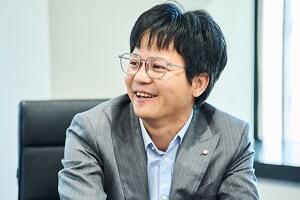
When I was consulted about a global project, they said, "There are still issues to be addressed in aligning the understanding between the headquarters and the local area," and it gave me a clear picture of what I needed to tackle for the time being.
A: In addition to the direct conversations, there were many people from companies at the venue who were interested in overseas expansion and global business. I saw conversations between such people here and there, and I also saw members giving specific advice. I think one of the benefits was being able to feel the excitement of business.
C: It was definitely a valuable opportunity to see the high level of trust that customers have in B-EN-G.
-Have your feelings about the company B-EN-G changed?
C: I felt a strong sense of loyalty to the company. Everyone was a colleague and friend of the same company. I was happy to have that feeling.
E: I also got the impression that "we're all friends." Of course, the conversations were mainly about business, but the employees shared their issues and know-how with each other, and even though they were from different locations and departments, they discussed things for the B-EN-G Group, and I felt that their relationships went beyond those of "colleagues."
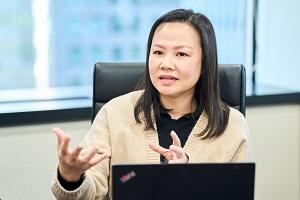
During my stay, all the staff at the Japanese headquarters were very kind. When I visited the headquarters, I was in trouble because I didn't have an entrance card, and a staff member came over to help me with the pass card. This is just one example, and a small episode, but I was happy to be able to feel the culture of B-EN-G in each of these staff's actions.
Miyagi: I felt that it was a "one team" organization where people who love the company gathered together. I joined the company by chance, but I have a strong desire to work there for a long time. I also liked the friendly working atmosphere at the head office. There are slogans on the walls, and you can feel the bottom-up culture.
Jonathan: After the event, I was able to visit the headquarters office for the first time. I felt this when I spoke to many members at the venue, but there are a lot of people who are very dedicated to their work. It inspired me to try harder.
BE:YONDのようなイベントを現地で企画したい
-Through your participation in BE:YOND and your stay in Japan, was there anything you learned or discovered that you would like to put to use when you go back home?
E: It was impressive to see how the younger generation at the Japanese headquarters are studying so hard. I would like to encourage the Thai team to also actively acquire knowledge, so that we can provide high-quality support.
Dimas: I would like to hold an event in Indonesia and collaborate with overseas partners to create activities that will increase engagement.
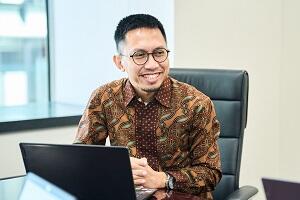
I wanted to create something like a smaller version of BE:YOND, and come up with ways to help people become more aware of the brand.
Miyagi: I'd like to make use of the many things I've discovered through interacting with members from other locations, such as sales etiquette and how to create materials. Also, discovering things by meeting someone in person, such as "I'm surprised he's a tall guy," makes it easier to have a lively conversation online and creates synergy. I'm looking forward to seeing what happens in the future.
--This is a great opportunity, so please tell us if there is anything you would like the Japanese headquarters to do.
Jonathan: I'm very grateful for the support I receive on a daily basis. However, I wish the documents attached to emails were a little shorter compared to the US (laughs).
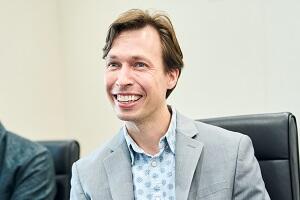
Of course, it can't be helped because the system is so complicated, but sometimes there are more than 100 slides, whereas in American culture, even 20 slides is considered too many.
Dimas: Since we have overseas bases, I thought, "I want more people from the Japanese headquarters to come here." I want the Japanese staff to feel more of a presence, that "We have a subsidiary here overseas."
--Finally, please tell us how you feel now that you've returned to your home country.
Miyagi: I shared the photos with my colleagues in Indonesia because I wanted them to see the event, and some of them said they wanted to go too. I want to expand our business there and bring even more colleagues next time.
Dimas: From Japan's perspective, language is one of the barriers to entry into Indonesia, but we can speak Indonesian, English, and Japanese, so we would like to use this strength to contribute to more customers.
See: I was able to absorb the policies of the Japanese headquarters and the know-how shared there, so I would like to keep pace with them in Thailand as well. Like Indonesia, our Thai base has the advantage of being able to provide multilingual support, with "Japanese people who can speak Thai and Thai people who can speak Japanese." I would like to take advantage of this and continue customizing the product to make it even easier to use in Thailand.
A: The Thai team is a professional group that can propose total solutions. I would like to continue working hard, making use of that strength.
Xu: As I mentioned earlier, I would like to expand the business to the point where we can host events. We have a great team in Shanghai that has the ability to complete even large-scale projects according to customer requests, so I don't think it's impossible.
Jonathan: This event made me realize once again the importance of face-to-face conversations. I would like to secure a project that will allow our Japanese members to come to the US. Our US base is a small team of four members, but we work well together, and Chicago, where we're located, is a wonderful place. I would like to treasure the connections we made this time and develop our work even further.
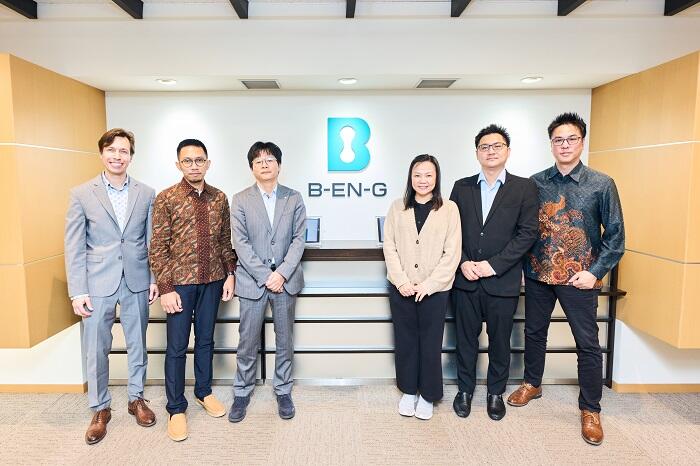
(Text: Kyodo News Digital)
*This article is current as of March 2025.
